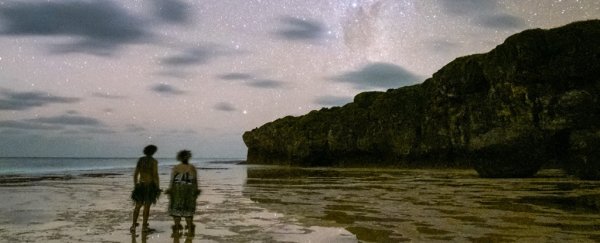Darkness is not something to fear. In a world increasingly plagued by the menace of unnatural light, darkness is an ideal to strive for – a threatened state we need to restore and protect wherever we can.
This core belief lies at the heart of the International Dark-Sky Association (IDA), a conservation non-profit charged with preserving the naturally dark night-time environment, defending it from the intrusive disturbances of artificial light pollution.
As part of this ongoing mission, the organisation has just announced an important world-first, declaring that the tiny South Pacific nation of Niue is the first country to be formally accredited as an International Dark Sky Place.
"The people of Niue are understandably proud and delighted to receive such an important acknowledgement from the International Dark-Sky Association," says Niue Tourism CEO Felicity Bollen.
"To be the first whole country to become a dark sky nation is a massive accomplishment for a small Pacific nation with a population of just over 1,600".
International Dark Sky Places are spaces recognised for responsible lighting policies that keep the night-time environment naturally dark. There are over 130 of these accredited dark sites across the world, including parks, reserves, and local communities, but never before has the honour been bestowed on an entire country like this.
If it sounds cultish, it's not. There's no end of scientific research charting the negative effects of light pollution, whether on animals, plants, or human health.
The harmful proliferation of electric light is so bad that it's estimated one-third of humanity can no longer see the Milky Way. In recent years, the problem has only been compounded by the emergence of low-Earth orbit sources of light pollution, whether minor gimmicks or developments so serious they might even threaten the science of astronomy.
Against this backdrop, the IDA's role in raising awareness of the natural night sky, and what we should be able to see within it, is an important mandate – even if the designation of International Dark Sky Places has no kind of legal effect, being more of an honorary title than anything else.
Regardless of that, the commitments that come with the honour are real, as are the environmental effects. To be recognised as a darkness preservation site, local authorities need to apply through the IDA, and demonstrate community support for the initiative.
In the case of Niue, the government has pledged ongoing management to preserve the country's dark skies, including efforts to replace streetlights on the entire island and upgrade domestic lighting, both as measures to eliminate unnecessary light pollution and keep traditional, timeless customs of stargazing alive.
"Niue's skies have been observed and appreciated for centuries," local elder and cultural guardian Misa Kalutea explains.
"The dark sky nation status adds new emphasis to the importance of our traditional knowledge, providing a reason for the retelling and sharing of this knowledge before it is lost."
